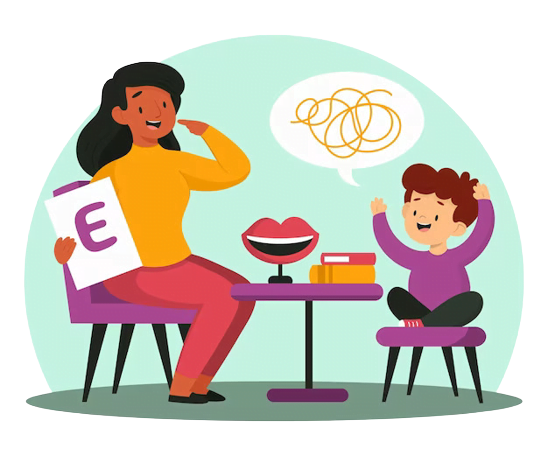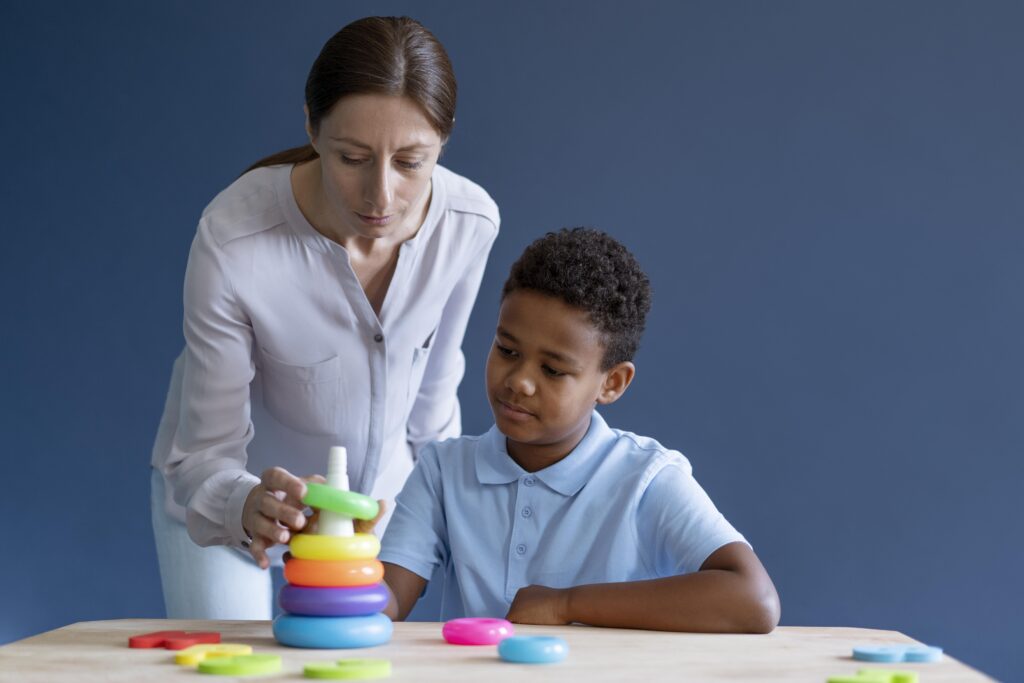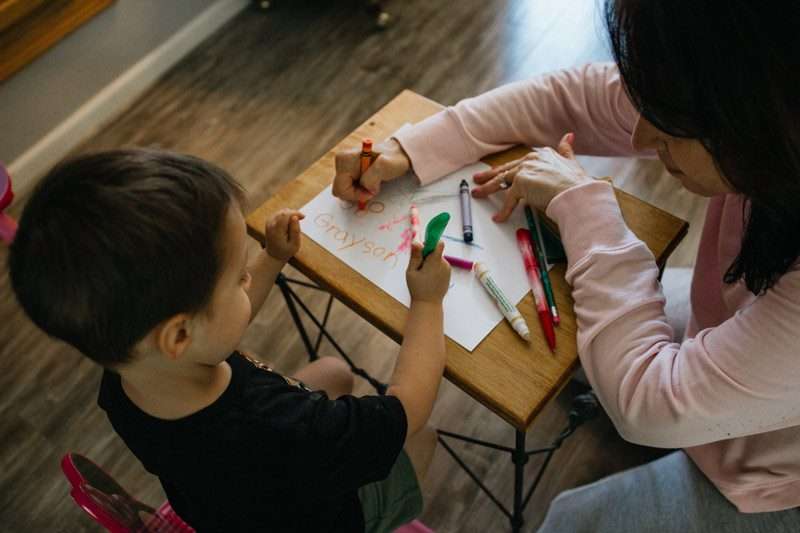Speech & Language Therapy
Speech & Language Therapy
At Crafting Lives, we assess and intervene to improve the speech and language of a special child. This is one of the easily noticeable defects. Speech disorder or delay can be both receptive (lack of understanding) and Expressive (lack of vocal speech sounds and words). We provide intervention for different types of speech disorders in our therapy centre.
A speech disorder can be simply defined as a problem with making sounds. Broadly they include:
- Articulation disorders: these are disorders in taking out a particular sound of a syllable. This is mainly because of faulty placement of tongue on different mouth parts for saying out a sound. For instance, a child may say ‘bonn’ for ‘ball’.
- Fluency disorders: These include problems such as stuttering, here the flow of speech is interrupted by unusual stops, partial-word repetitions (“b..b…bye”), or prolonging sounds and syllables (ssssoap).
- Voice disorders (disorders of resonance): Sometimes the pitch, volume of voice quality are such that the listener is not able to get an idea of what is being said. Also the child is seen to show discomfort while speaking. For instance, pitch might be too high or extremely low.
This is a disorder in which a child can say single words but has trouble putting words together to convey ideas. Language impairment can be both in understanding other people’s sentences (comprehension) and in expressing oneself. We mainly treat three types of disorders.
- Receptive disorders – These are the most common disorders. They mostly relate to problems with understanding or processing language.
- Expressive Disorders – Children with expressive disorders have difficulty putting words together to form a sentence or meaningful phrase. They usually have a very limited vocabulary and are unable to communicate.
- Cognitive-Communicative Disorders – Sometimes language disorders are the result of cognitive delays (eg, lack of attention, poor memory skills, lack of regulation, problem solving, etc.).
This is also one of the major categories wherein we give speech therapy to special kids. These are normally children who find it difficult to eat or drink. For instance, a five year old child dependent on mashed foods, or a three year old not able to sip from a sipper.
These are categorized as Dysphagia /oral feeding disorders and include problems with chewing and swallowing, coughing, gagging, and refusing foods.
What Do Speech Therapist Do at Crafting Lives
In speech-language therapy, a speech therapist works with a child one-on-one, usually 5-6 hours a week. When the child is ready, we also have a group class once a week for teaching social use of language. Speech Therapists use a variety of strategies, including:
The Speech therapist interacts with a child in one to one setup by playing and talking, using pictures, books, objects, or ongoing events to stimulate language development. The therapist may model correct vocabulary and grammar, and use repetition exercises to build language skills.
Articulation, or sound production, exercises involve having the therapist model correct sounds and syllables in words and sentences for a child, often during play activities. The level of play is age-appropriate and related to the child’s specific needs. The SLP will show the child how to make certain sounds, such as the “r” sound, and may show how to move the tongue to make specific sounds.
The therapist may use a variety of oral exercises — including facial massage and various tongue, lip, and jaw exercises — to strengthen the muscles of the mouth for eating, drinking, and swallowing. The therapist also introduce different food textures and temperatures to increase a child’s oral awareness during eating and swallowing.


FAQ Related to Speech-Language Therapy
Children might need speech-language therapy for many reasons, including:
- hearing impairments
- cognitive (intellectual, thinking) or other developmental delays
- weak oral muscles
- Autism (ASD)
- motor planning problems
- articulation problems
- fluency disorders
- respiratory problems (breathing disorders)
- feeding and swallowing disorders
- traumatic brain injury
Early intervention is the most important in any kind of speech disorder. Speech defects are not related just to taking out sounds, but may have other associated disorders. Hence, therapy should begin as soon as possible. Children who start therapy early (as early as 1.5-2 years) tend to have better results than those who begin later.
At Crafting Lives, we believe in empowering parents. It is very important that parents follow home plans and try to engage children in speech language activities as much as possible. Usually, children learn speech when they want to interact with others, hence an ‘intention to communicate’ is important in all speech- language interventions.
This is an ambiguous question, as it depends on many factors, viz. efficiency of the therapy plan, regularity of therapy sessions, kinds of special needs of the child, presence of any odd behaviours in the child, inputs at home, support from immediate environment etc. Also speech and language is not just learning words, it is quite vast- blending words, talking, narrating past incidences, understanding others and building up communication and so on.









